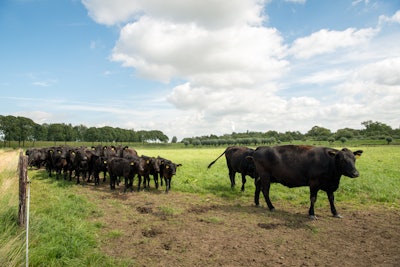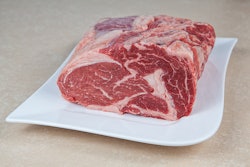
A bill introduced in the U.S. House of Representatives and Senate would allow farmers to voluntarily convert their on-farm infrastructure toward what it says is more climate-friendly uses with conservation dollars from the U.S. Department of Agriculture (USDA).
The Industrial Agriculture Conversion Act (IACA), introduced by North Carolina Rep. Alma Adams, Massachusetts Rep. Jim McGovern and U.S. Sen. Cory Booker New Jersey, all Democrats, would use existing agricultural conservation funds to support farmers transitioning from concentrated animal feeding operations (CAFOs) to what the bill’s sponsors call more sustainable and humane production systems.
“Farmers want to produce food in ways that are good for people and the planet, but aren’t always empowered to do so in a consolidated food system like ours,” Adams said. “Whether pasture-based or plant-based, farmers want to farm sustainably, humanely and resiliently.”
The IACA is the first standalone federal legislation to assist producers who want to make the move from intensive animal agriculture to pasture-based animal agriculture or specialty crop production. It would allow the USDA to create a grant program for eligible climate-smart conversion projects, funded by the Inflation Reduction Act’s pathbreaking investments in agricultural conservation.
“We need a food system that feeds everyone while doing right by the people, the planet and animals,” McGovern said. “Farmers are at the center of that vision, and we need to do everything we can to support them.”
Specifically, the IACA would:
- Create a new grant program within the existing USDA Environmental Quality Incentives Program (EQIP), using funds provided for climate-smart conservation practices by the IRA
- Provide grants for on-farm infrastructure improvements to convert medium or large CAFOs to either crop production or pasture-based livestock operations
- Require grant recipients permanently cease operation of a CAFO within 180 days
- Prevent grant funds from being misused for new unsustainable facilities, such as methane digesters or manure lagoons
- Require 10% non-federal cost-sharing, with the option of lower cost-sharing amounts for socially disadvantaged farmers and ranchers
- Protect grant applicants from retaliation under the Packers and Stockyards Act
The bill was backed by animal welfare and environmental groups, as well as a handful of beef, dairy and goat farms.














